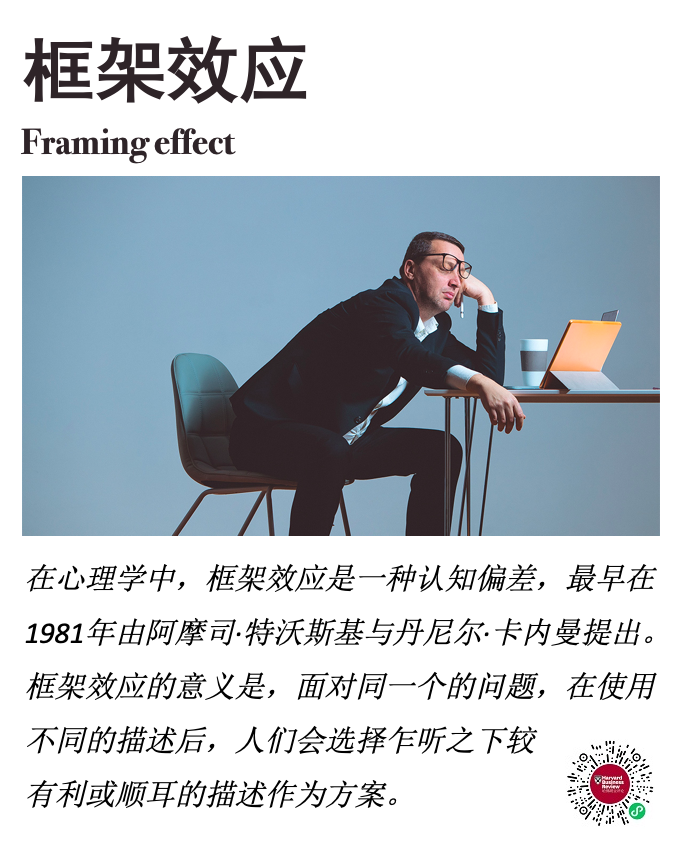
「释义」
在心理学中,框架效应是一种认知偏差,最早在1981年由阿摩司·特沃斯基与丹尼尔·卡内曼提出。框架效应的意义是,面对同一个的问题,在使用不同的描述后,人们会选择乍听之下较有利或顺耳的描述作为方案。当以获利的方式提问时,人们倾向于避免风险;当以损失的方式提问时,人们倾向于冒风险。
「应用场景」
成见使我们认为,在某些方面有相似之处的事或人之间,一定存在其他相似点(心理学上称为“代表性启发”)。自我中心让我们产生偏见,把个人偏好夸大成普遍现象。沉没成本误区让我们在泥潭里越陷越深,因为投入越多越不想放弃。框架效应指的是,表述方式的差异会影响我们所做的决定。比如,当一个人面临手术决策时,他更愿意听到“90%的人在5年后能存活”而非“10%的人5年后会死亡”,前者的表述更容易让人做出手术决策。
Overconfidence leads us to believe that our forecasts are more accurate and precise than in fact they are. The availability heuristic leads us to seize on whatever springs most readily to mind, because it is memorable or we recently experienced it. The representativeness heuristic leads us to believe that things or events or people that are similar in one way are similar in other ways, too. Egocentric bias leads us to exaggerate the extent to which our tastes and preferences are typical. The sunk-cost fallacy leads us to stick with a hopeless project because we have already invested so much in it. Framing effects influence our decisions according to the semantics of how the options are presented. (For example, people are more likely to agree to an operation if they are told that 90% of people are alive after five years than if they are told that 10% of people are dead after five years.)
以上文字选自《哈佛商业评论》中文版2014年12月刊《破解“团体迷思” 》
凯斯·桑斯坦、雷德·海斯蒂 | 文
马冰仑 丨编辑




